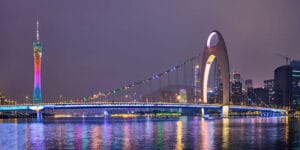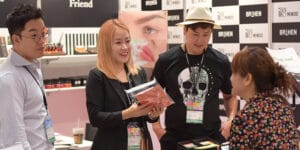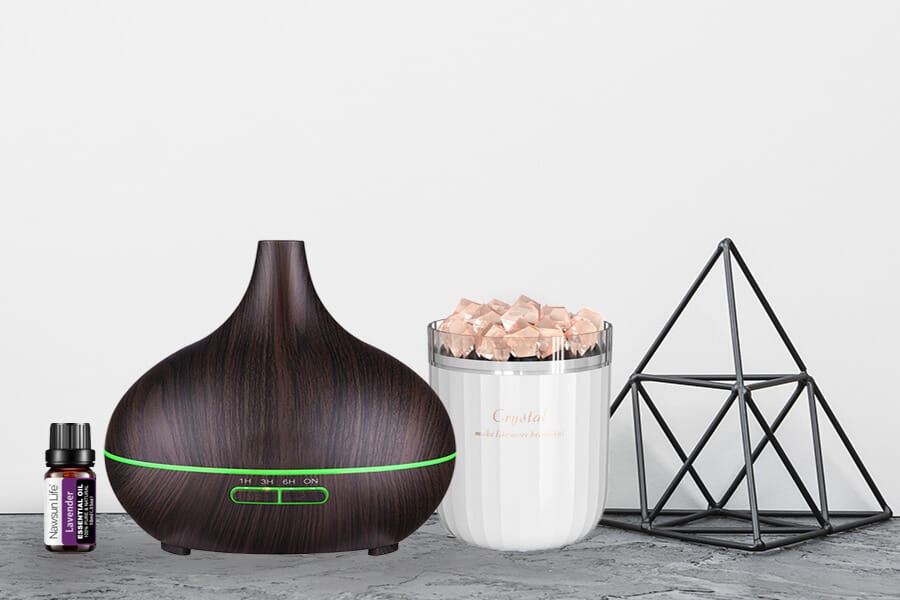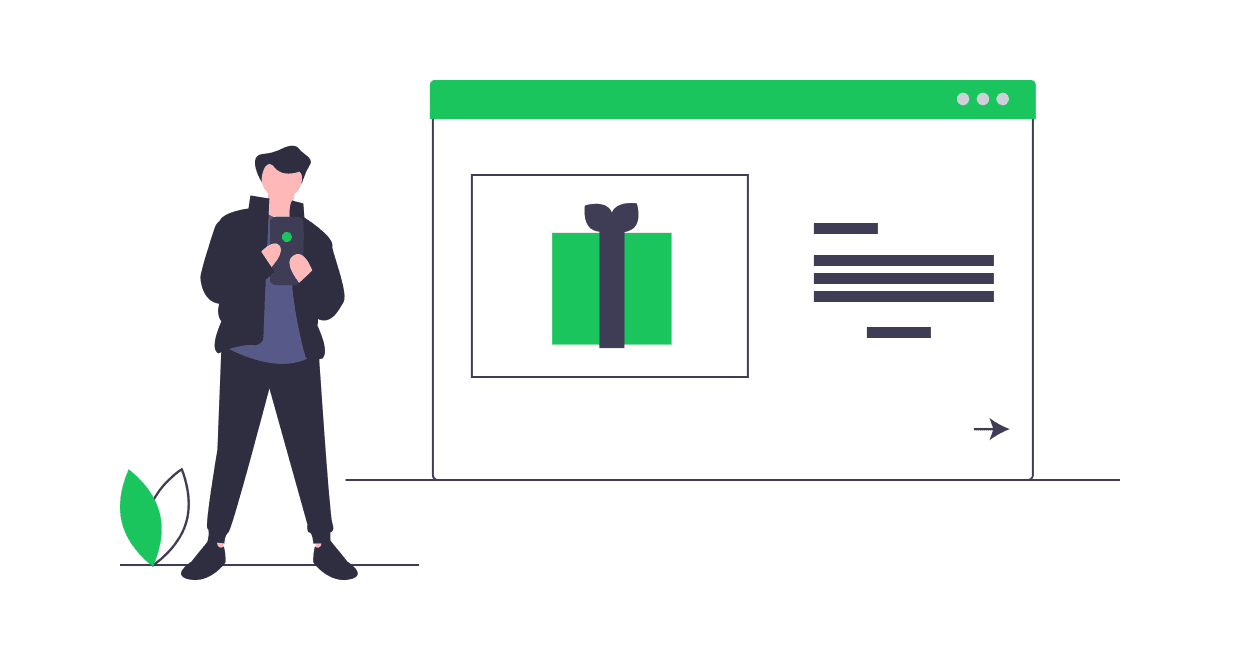Why Importing Essential Oils from China? The Pros and Cons
Without question, China is the world’s factory, but several of China’s low-end manufacturing industries, such as textiles, relocated production lines to other Southeast Asia nations in the past years. While electronics, cosmetics, home appliances, and furniture manufacturing in China remain tremendously strong.
In general, when it comes to essential oils-related product manufacturing, China still has many advantages, including the supply chain. When mass manufacturing at low costs is taken into account, China remains the biggest player.
Pros of Importing Essential Oils from China:
- Access to a broader selection of products than is available domestically.
- Access to rare and difficult-to-find products, which can help you attract new customers.
- Overseas suppliers are frequently more receptive to collaborating with small businesses and producing in small quantities.
- Utilizing multiple suppliers globally or in different regions can help you increase your total supply capacity while also protecting you from supply chain disruptions caused by natural disasters.
- You can obtain resources, materials, or skills that are not available domestically, such as manufacturing a particular type of product.
- Sourcing from overseas is a great learning experience that can serve as a springboard for expanding into new markets.
In general, sourcing from overseas manufacturers results in significant cost savings when compared to sourcing domestically.
Cons of Importing Essential Oils from China:
- Restrictions, certifications, duties, and tariffs are in place that may affect import or export at either end of transactions.
- You may encounter different industrial or technical standards, which may or may not correspond to the requirements of your home country.
- Documentation requirements for cross-border transactions can be lengthy and complex.
If you have previously imported from China, you may be aware that manufacturers can produce both low and high-quality products, depending on the client’s requirements and specifications. The majority of Chinese goods are tested and verified by international certificates to enter the global market, such as the CE certificate of compliance for European markets.
We’ll go over the fundamentals of finding the best supplier and importing essential oils from China in this post.
Finding the Right Essential Oils Suppliers
Leading Online Wholesale Marketplace
Searching wholesale marketplace online is the easiest and the most convenient way to find essential oils suppliers from China.
If you can only afford a small MOQ (minimum order quantity) and have never purchased essential oils from China before, AliExpress and DHgate are good places to start. These two websites meet the needs of small businesses and starters to purchase for small quantities or dropshipping.
If your budget allows for a MOQ of hundreds or thousands of items, or if you require customization, you can try visiting larger Chinese online wholesale markets such as Alibaba and Global Sources.
Alibaba
Alibaba is a global retailer and e-commerce company. Alibaba.com is a global e-commerce platform that connects suppliers and international manufacturers with business buyers from all over the world.
Alibaba.com enables you to quickly and easily manage all global sourcing processes, from product sourcing and inspection to logistics and payments.
Global Sources
Global Sources is another well-known business-to-business e-commerce website connecting buyers and suppliers online and offline for over 50 years.
Globalsources.com has over ten million international buyers registered. Never content to rest on its laurels, the company connects authentic buyers and verified suppliers worldwide through trade shows, digital platforms, and magazines.
AliExpress
AliExpress was founded in 2010 and is owned by the Alibaba Group. It is one of the largest online marketplaces, with over 100 million products available for purchase. It’s an excellent source for dropshipping products, as you can find everything from essential oils, jewelry, clothing to baby apparel and children’s toys at a reasonable price.
Additionally, AliExpress enables you to dropship products to any location in the world. You can import product content directly from AliExpress.com to your store, allowing you to choose from millions of different items. Besides that, you’ll have the ability to set your own prices and markups.
Online Directories
Online business directories are another resource for locating the right essential oil suppliers. Thousands of manufacturers, wholesalers, and suppliers are listed in these directories. We’ve included a list of some of the most popular business directories below:
China Essential Oils Industry Clusters
Guangzhou
The scale of Guangzhou’s cosmetics industry exceeded 160 billion China Yuan (25 billion USD) in 2019, and Guangzhou’s cosmetics sales grew against the trend in 2020 even though it was affected by the epidemic.

Guangzhou has gathered more than 1,800 cosmetic manufacturers, accounting for 37.5% of the country’s cosmetic manufacturers. More than 100 have been certified as national high-tech enterprises, highlighting the huge advantage of the concentration of innovative subjects in the cosmetic industry in Guangzhou.
Guangzhou is the largest cosmetic, and essential oils OEM production base in the country, half of Guangzhou’s national cosmetic processing production, the industry cluster has become quite large. Baiyun District, Huadu District, Huangpu District, Conghua District are more concentrated essential oils industrial clusters distribution.
Shenzhen
Shenzhen is primarily known for its high-tech industry, home to many prominent tech companies, such as telecommunications and electronics corporation Huawei, internet giant Tencent, drone-maker DJI, and telecommunications company ZTE. Shenzhen is dubbed by media outlets as “China’s Silicon Valley” or the “Silicon Valley of Hardware” for the world.

Shenzhen is also one of the largest manufacturing bases for essential oil diffusers. Many Amazon hot-selling essential oil diffuser brands have their OEM suppliers in Shenzhen, for example, URPOWER, ASAKUKI, InnoGear.
Ji’an
Unlike Guangzhou and Shenzhen, two coastal megacities, Ji’an is an inland city situated in the central region of Jiangxi province of China while bordering Hunan province to the west.
Ji’an City makes full use of the rich resources of forestry and natural spices, the main focus of forestry and chemical spices industry, the formation of a 10 billion Yuan industry clusters, billion yuan enterprises square.
In recent years, the rapid development of forestry and spices enterprises in Ji’an derived from the forestry and spices, medicinal spices two series of more than 200 varieties. The product fragrance floating around the world, selling well in Europe and the United States, Malaysia, Hong Kong, etc., become the national influential forestry and spices processing, distribution center, and south China’s most dynamic forestry and spices industry development center.
Famous Chinese Trade Shows
China Beauty Expo

Source: China Beauty Expo
China Beauty Expo (CBE) is highly recognized as the professional platform for personal care, makeup & fragrances, beauty, health & wellness brands, nail & eyelash brands, and related services to develop their business in China over 25 years. Throughout the years, China Beauty Expo has become the gathering spot for Asia Beauty.
PCHi
The PCHi (Personal Care and Homecare Ingredients) trade show is rotated annually between Changjiang Delta and Zhuhai Delta – two of China’s most affluent business areas and key manufacturing hubs for personal care, cosmetics, and home care industry. That is why PCHi continues to draw business professionals such as formulators, manufacturers, R&D technologists, and senior management from all corners of the global community.
PCHi is supported by industry-leading trade associations such as the China Association of Fragrance Flavor and Cosmetic Industries (CAFFCI), the China Association of Surfactant Soap and Detergent Industries (CASSDI), and numerous international trade media.
CIBE
CIBE (China International Beauty Expo) is the largest beauty industry platform in China. Established in 1989 as the Canton Beauty Fair, now CIBE, it has successfully connected beauty industries from national and international suppliers, buyers, and industry professionals, making it China’s cradle of the global beauty business.
The show is held in the top 4 cities (Guangzhou, Beijing, Shanghai, Shenzhen). CIBE is the entry point for B2B and B2B2C beauty/health brands entering China and Chinese brands increasing their presence abroad.
HKTDC Beauty & Wellness Expo

Source: HKTDC Beauty & Wellness Expo
The Hong Kong Trade Development Council (HKTDC) is a statutory body established in 1966 as the international marketing dedicated to creating opportunities for Hong Kong’s businesses. The HKTDC organizes more than 30 fairs each year. Nine of these fairs are the biggest of their kind in Asia, while three are the world’s largest, namely, the HKTDC Hong Kong Gifts & Premium Fair, the HKTDC Hong Kong Watch & Clock Fair, and the HKTDC Hong Kong Electronics Fair (Autumn Edition).
The HKTDC Beauty & Wellness Expo was normally held in August every year at Hong Kong Convention and Exhibition Centre.
A Step-by-step Guide to Import Essential Oils from China
1.Find the Chinese Suppliers
China is rapidly developing into a manufacturing superpower, manufacturing a sizable portion of the world’s consumer goods. Importing from China has proven to be a successful strategy for many businesses regarding global sourcing. This is an incredible opportunity for you as an essential oils distributor and reseller.
As mentioned previously, you can find suppliers directly from China by searching online wholesale marketplaces such as Alibaba, Global Sources, and Made in China, visiting essential oils industry clusters in Guangzhou or Shenzhen, or attending industry trade shows.
2.Price Negotiation
When importing from China, there is a basic principle: quality is roughly related to price. Generally, unusually low-priced items indicate poor quality. Another reason for a low price is the following:
- The quality is significantly lower than others
- Different shipping terms (Using EXW instead of FOB)
- Significantly higher minimum order quantity (MOQ)
Prices in China are becoming increasingly fixed, making negotiation more difficult. However, importers and buyers can still negotiate terms such as payment or a minimum order quantity. When negotiating, put yourself in the shoes of the manufacturer. The objective is not to take advantage of your manufacturing partner to obtain the best price. It is to collaborate for both parties to benefit and be happy. It is the only way to ensure the longevity of a healthy relationship.
3.Calculate Import Cost
A landed cost is a complete cost of transporting a shipment to its final destination. It is most typically linked with international shipping and usually refers to the cost of shipping plus any tariffs, taxes, or fees.
Even while imported items are sometimes less expensive than domestic items, there are certain additional charges to sourcing from China. The total landed cost may include a variety of other components, such as:
Shipping costs
Keep in mind that these fees will vary greatly depending on the date of your shipping. Transportation is a critical component of a landed cost. In general, as transit speeds improve, so does the cost of shipment.
Local charges
Storage fees, port handling fees, documentation, quarantine, domestic haulage, and so forth. Your freight forwarder and customs broker might estimate these expenses. When crossing borders, products imported from China are subject to examination. These fees, depending on the things imported, can add up to unforeseen charges.
Customs duties
Essential oil-related product importers should complete all customs papers completely and precisely. If a product comes within the de minimis level, which enables the duty-free importation of unlimited products below a particular value, tariffs will not normally be imposed. The de minimis amount differs per country. Therefore it’s critical to do your homework.
Taxes
You’ll need to grasp your country’s local taxes and how they apply to imported goods. Domestic taxes, like tariffs, are a major component of a landed cost. Some countries have more favorable tax rules than others, and it is critical to examine these policies ahead of time.
Insurance
Your shipping fee may already include some insurance, so find out what it covers before purchasing additional protection. In most countries, duty is levied on what is known as CIF (cost, insurance, and freight) (cost of goods, insurance, and freight). As the cost of insurance rises, so will the duty amount, raising the landing cost.
4.Essential Oils Compliance and Safety
Some various certifications and regulations must be followed when importing essential oils from China. The CE certification applies to a wide range of products, including cosmetics, clothing, toys, furniture, electronics, etc. You can contact suppliers for assistance in getting your product certified. Other certifications and regulations include RoHS, CPNP, and FDA.
Some labeling requirements, such as the CE marking, must also be met by the product. Most products must have an English label attached that includes the product details, manufacturer details, usage, expiry date, country of origin, and warnings.
5.Purchasing
In this step, we’d like to emphasize a few things that should never be ignored in a supplier purchasing contract while importing from China.
Product specifications, payment terms, quality standards, lead times, and warranties should all be covered in the contract between the importer and the Chinese supplier.
Finally, the manufacturer aims to establish a long-term business relationship with its buyers. As a result, the supplier would be eager to obtain specific instructions and information about the customer’s requirements to avoid problems after manufacturing.
6.Payment
International Wire Transfer (Telegraphic Transfer)
Bank-to-bank wire transfer is a popular payment method that manufacturers commonly accept. However, the fees can be costly because you will need to include them in your bank’s foreign currency rate and pay a preset cost for every transaction. When the money is delivered, the recipient may be required to pay a preset charge. Because these transactions typically take two to five business days to complete, the supplier is also risky to currency exchange swings between the time the payment order is signed and the date payment is placed into the supplier’s bank.
Escrow
You must pay before shipment with this type of payment. However, the funds are held by a third party. They are not forwarded to the supplier until you have received your order. Alibaba provides buyers and sellers with a service called “Trade Assurance,” which is related to an escrow service. According to Alibaba, the assurance adds a level of protection for buyers interacting with Chinese manufacturers.
Escrow services, such as Alibaba Trade Assurance, are useful for low-value transactions. However, you may wish to avoid them on larger transactions due to the additional cost and the fact that they can hold up your money for some time.
Letters of Credit
Letters of credit (LC) is a payment method in which a bank guarantees payment to a seller on the buyer’s behalf. Banks typically provide these letters exclusively to clients (buyers) who have pledged security, and they charge a portion of the letter of credit’s value as their fee.
Letters of credit are best suited for large enterprises with large orders because the high costs can eat into the thin margins of small businesses with smaller transactions.
There are various types of letters of credit, and it would be too hard to go into detail about each here. LC is not very ideal because it is fairly expensive, and the process is time-consuming — involving a lot of paperwork.
PayPal
This payment method is only appropriate for small orders or beginning samples since PayPal charges a percentage of the transferred cash and a currency conversion fee for each transaction.
Its benefits include quick payment, but the fees are expensive. There aren’t many Chinese suppliers who accept PayPal just yet, but the number is growing. It is becoming increasingly common for small transactions, particularly internet commerce.
Western Union
Western Union is a company that provides money transfer services. However, Western Union is helpful for those who need to send money urgently anywhere in the world. However, it does not provide consumers with any payment protection, and their fees might be rather costly.
When you send money using Western Union, you are assigned a 10-digit Money Transfer Control Number, which you must then deliver to the person you are paying. Anyone with that number and an ID can pick up the money you send from a Western Union branch. But neither you nor Western Union can do anything if that person then disappears with your money.
It is also unusual for professional companies to request payment through Western Union. So, if a potential supplier asks to be paid in this manner, be on the lookout.
7.Quality Control
Essential oil-related product importers and buyers must understand that production issues must be identified before the products are shipped. They also recognize that managing product quality is a continuous process, not a one-time activity.
The purpose of quality control is to protect the importer from shipping non-qualified goods. A pre-shipment inspection is the most common type of inspection performed by an importer when importing from China.
Quality Assurance (QA) includes a much broader scope than Quality Control (QC), which only checks for conformity. QA encompasses all of the steps taken to prevent quality issues from occurring. The following are the most critical quality assurance steps:
(1) Examining new product ideas while considering possible issues;
(2) Evaluating and approving trustworthy manufacturers, as well as having them sign the appropriate contract;
(3) Ensuring that the buyer’s demands are obvious to all parties via excellent examples as well as a documented specification sheet;
(4) Checking to manufacture at many stages, if applicable. The sooner you detect flaws, the simpler it is to resolve them.
(5) Continuously upgrading the quality assurance process throughout time.
8.Shipping and Logistics
Shipping and logistics are vital, and they are one of the most stressful and difficult components of importing from other countries.
Shipping essential oils-related items from China may be done in three ways: air courier (express), air freight, and sea freight.
It may be practical to send via air freight only if the numbers are small and the items are tiny in size and weight.
We do not recommend shipping essential oils by sea freight because they are usually packaged in glass bottles, smaller in size, with a higher unit value, and air freight would be a better option. However, ocean freight would be a better choice for essential oil diffusers due to their larger unit size.
UPS, FedEx, and DHL are popular providers of air courier or express services. The couriers offer door-to-door service as well as customs brokerage, so you won’t have to bother about getting a customs broker.
Air freight and sea freight are far more difficult than air couriers. They are also significantly cheaper than express. Sea freight is always billed by volume, whereas air freight is billed by weight. Air freight is roughly half the price of air couriers, while sea freight is roughly 10% the price of air couriers.
Get free guides & sources to help grow your aromatherapy business.
No charge. Unsubscribe anytime.




